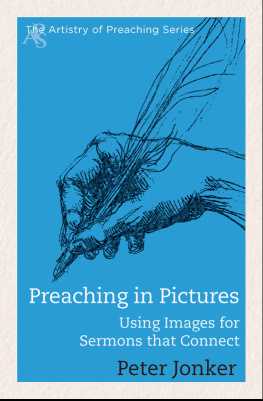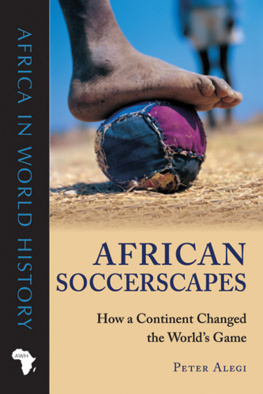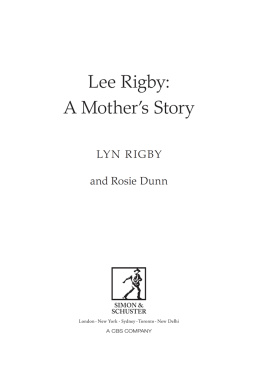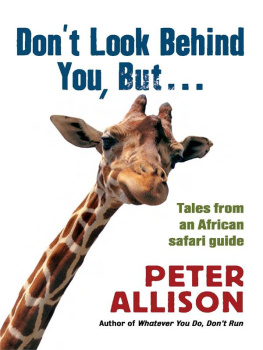African Images
Global Issues
General Editors: Bruce Kapferer, Professor of Anthropology, University College London and John Gledhill, Lecturer in Anthropology, University College London
This series addresses vital social, political and cultural issues confronting human populations throughout the world. The ultimate aim is to enhance understanding and, it is hoped, thereby dismantle hegemonic structures which perpetuate prejudice, violence, racism, religious persecution, sexual discrimination and domination, poverty, and many other social ills.
First published 1996 by Berg Publishers
Published 2020 by Routledge
2 Park Square, Milton Park, Abingdon, Oxon OX14 4RN
605 Third Avenue, New York, NY 10017
Routledge is an imprint of the Taylor & Francis Group, an informa business
Peter Rigby 1996
All rights reserved. No part of this book may be reprinted or reproduced or utilised in any form or by any electronic, mechanical, or other means, now known or hereafter invented, including photocopying and recording, or in any information storage or retrieval system, without permission in writing from the publishers.
Notice:
Product or corporate names may be trademarks or registered trademarks, and are used only for identification and explanation without intent to infringe.
Library of Congress Cataloging-in-Publication Data
A catalogue record for this book is available from the Library of Congress.
British Library Cataloguing-in-Publication Data
A catalogue record for this book is available from the British Library.
Cover Photograph: Milton Rogovin, Buffalo, New York.
ISBN 13: 978-1-859-73196-3 (hbk)
ISBN 13: 978-1-859-73102-4 (pbk)
Typeset by JS Typesetting, Wellingborough, Northants.
In this book, I attempt a brief anthropological, or, if you like, ethnographic, study of a prominent group of Western (Euro American) scientists and intellectuals. While it would be most desirable for such a project to be based upon first-hand fieldwork among these selected academics in the classical anthropological tradition (see Theoretical Coda, below), my particular interests and somewhat radical approach to the social sciences, as well as the exigencies of an academic career, have precluded my obtaining the time, opportunity, or funding for such an exercise in empirical investigation.
However, with indignation as part of my motive, I fully concur with Laura Naders trenchant comment, first published in 1969, upon scientific adequacy in anthropology (1974:289):
If we look at the literature based upon field work in the United States, we find a relatively abundant literature on the poor, the ethnic groups, the disadvantaged; there is comparatively little field research on the middle class and very little first hand work on the upper classes. Anthropologists might indeed ask themselves whether the entirety of field work does not depend upon a certain power relationship in favor of the anthropologist, and whether indeed such dominant-subordinate relationships may not be affecting the kinds of theories they are weaving. What if, in reinventing anthropology, anthropologists were to study the colonizers rather than the colonized, the culture of power rather than the culture of the powerless, the culture of affluence rather than the culture of poverty.
And, I may add, the culture of the rulers, rather than that of the ruled.
Many anthropologists have been asking themselves these questions (e.g. Diamond 1974; Fabian 1983; Jackson 1989), but few have translated their discomfort into fieldwork perspectives gained from studying up, preferring or being obliged to remain upon a theoretical level. While others have attempted to carry out such empirical studies (see Siwolop 1991; Burkhalter 1991 for some discussion), their necessary involvement with the aims, methods, and values of the economically powerful with whom they work mostly vitiates any really critical stance in the sense advocated by Nader. There are exceptions to this rule, such as the work of Traweek (1988); however, as Sandra Harding points out (1989: 17), there are occasional anthropologies of the powerful in the West but they are revolutionary; they must draw attention to the irony of their project in order to locate it in a comprehensible intellectual terrain for conventional Western audiences.
In lieu of any fieldwork on my own part, then, and in keeping with the legitimacy currently afforded the investigation of texts and textuality in anthropological discourse (Manganaro 1990; Clifford and Marcus 1986; Marcus and Fischer 1986; Clifford 1988; etc.), I deal here with the published works of the intellectuals and scientists targeted (how I love that word when it is aimed at the movers and shakers, rather than the moved and the shaken!) in this study. In order to understand what characterizes this particular set of academics and public figures, I selected a small number of texts. As Archie Mafeje perceptively notes in his epistemological decoding of a set of anthropological writings on the inter-lacustrine states of Africa (1991:iii). A finite number of texts by the best exponents of each branch of knowledge sufficed. The same could be said of literary criticism. The essence is not the number of texts that one has read but how well one understands them.
Finally, since the purpose of this book is to examine the broader implications and consequences of intellectual work, not only dialectical framework of knowledge (see Theoretical Coda). This may be achieved only by using the kinds of thinking and knowledge (that is, their dialectical forms) to which receptive anthropologists have been exposed in the predominantly non-capitalist societies in which they have lived or been brought up. I refer in this book mainly to African societies, for reasons given below. Non-social science readers may omit the Coda without missing the main argument!
In a remarkably insightful book on cultural studies in Britain and America, Patrick Brantlinger notes (1990:147) that, one obvious characteristic women share with both the working class and racial minorities is that they are in actual fact a majority. Of course in certain communities and places around the world, men outnumber women, but the world population statistics tell another story. The same is true of the non-white or non-European races of the world: the populations of Asia and Africa together account for over 70% of the worlds total. So, too, the working class, or those who perform physical labor for wages or produce food from land they do not legally own, are in the global majority.
Given the views of the scientists and intellectuals that follow in this book, they perhaps would be forgiven for not being too happy with these numbers. But these facts and figures raise interesting questions, and Brantlinger puts them succinctly (1990:1478):
But how does it come about that [the terms race, class, and gender] are perceived in the dominant culture [of the West] as relevant to minorities instead of majorities? How has the map of the world become so distorted in, for example, traditional humanities fields that questions of class, gender, and race seem marginal, special topics for seminars and graduate courses, perhaps, but not for the main agenda? These categories signify the major forms of division and difference between people. Understanding their historical, social construction, their complex interconnections, and their effects on everyday life and the formation of subjectivities is the chief aim of oppositional criticism.











